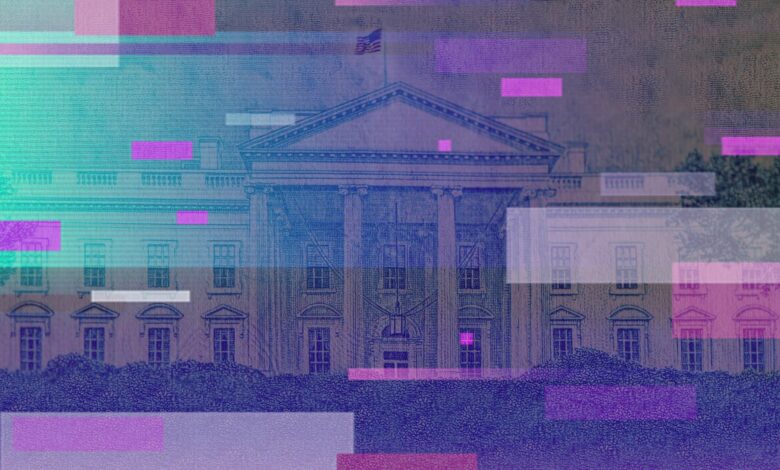Trump’s AI Plan Focuses on Upskilling Over Worker Protections – Key Takeaways

▼ Summary
– The Trump administration’s AI Action Plan emphasizes deregulation, global dominance, and avoids addressing key AI conflicts like copyright and environmental protections.
– The plan focuses on AI upskilling for workers but lacks regulations or protections against job displacement, placing the burden on employees to adapt.
– Government AI models may be censored, with proposals to remove references to DEI, climate change, and misinformation from federal AI guidelines.
– The plan threatens state AI legislation by suggesting federal funding could be limited for states with restrictive AI regulations, targeting safety and transparency laws.
– Infrastructure projects like data centers will be fast-tracked by reducing environmental regulations, raising ecological concerns despite potential efficiency gains.
The Trump administration has unveiled a comprehensive AI strategy prioritizing workforce adaptation and global technological leadership while sidestepping contentious issues like worker protections and environmental safeguards. The 28-page document outlines a vision focused on deregulation, rapid deployment, and international influence, with notable gaps in addressing emerging ethical and legal challenges surrounding artificial intelligence.
Central to the plan is an emphasis on AI upskilling programs rather than safeguards against job displacement. The proposal directs multiple federal agencies, including the Department of Labor and the Department of Education, to allocate funding for retraining initiatives and assess AI’s impact on employment. Employers would receive tax incentives for offering AI literacy programs, enabling tax-free reimbursements for worker training. However, the plan stops short of introducing protections for employees vulnerable to automation, placing the burden on individuals to adapt rather than mandating corporate accountability.
Government AI models may face content restrictions under the new policy. The administration has criticized major AI developers for perceived political bias, labeling models from OpenAI, Google, and Anthropic as overly progressive. In response, the plan proposes stripping references to diversity, equity, and inclusion (DEI), climate change, and misinformation from federal AI guidelines, including the NIST AI Risk Management Framework. While advocating for “free speech” in AI systems, the document simultaneously calls for scrutiny of Chinese AI models to assess alignment with Communist Party narratives, a move critics argue reflects selective enforcement of ideological neutrality.
State-level AI regulations could face federal pushback. Earlier attempts to impose a nationwide moratorium on state AI laws failed, but the administration’s strategy hints at financial repercussions for states enacting restrictive policies. Federal agencies may withhold AI-related funding from jurisdictions deemed hostile to innovation, leaving ambiguity around which regulations would trigger penalties. Advocates warn this could undermine local efforts to establish consumer protections, particularly in areas like transparency and safety standards.
Infrastructure expansion takes precedence over environmental concerns. The plan accelerates permitting for data center construction by relaxing regulations under the Clean Air Act, Clean Water Act, and other environmental laws, a move justified as necessary to maintain U.S. competitiveness. While proponents argue efficiency gains could offset resource demands, skeptics highlight the ecological risks of unchecked data center growth, particularly given rising energy and water consumption tied to AI operations.
Existing Biden-era AI safeguards may be dismantled. The administration plans to review and potentially revoke regulations perceived as stifling innovation, including Federal Trade Commission investigations into AI products. Critics caution that rolling back oversight could enable harmful applications, from deepfake exploitation to unregulated AI-driven services.
Additional measures include promoting open-source AI development, relaunching AI.gov as a policy hub, and continuing First Lady Melania Trump’s campaign against AI-generated deepfakes. The newly established Center for AI Standards and Innovation (CAISI) will also conduct security testing, though its independence from political influence remains uncertain.
The blueprint reflects a market-driven approach to AI advancement, favoring speed and private-sector leadership over systemic guardrails. Whether this strategy balances innovation with public welfare, or exacerbates existing disparities, remains to be seen.
(Source: zdnet)





